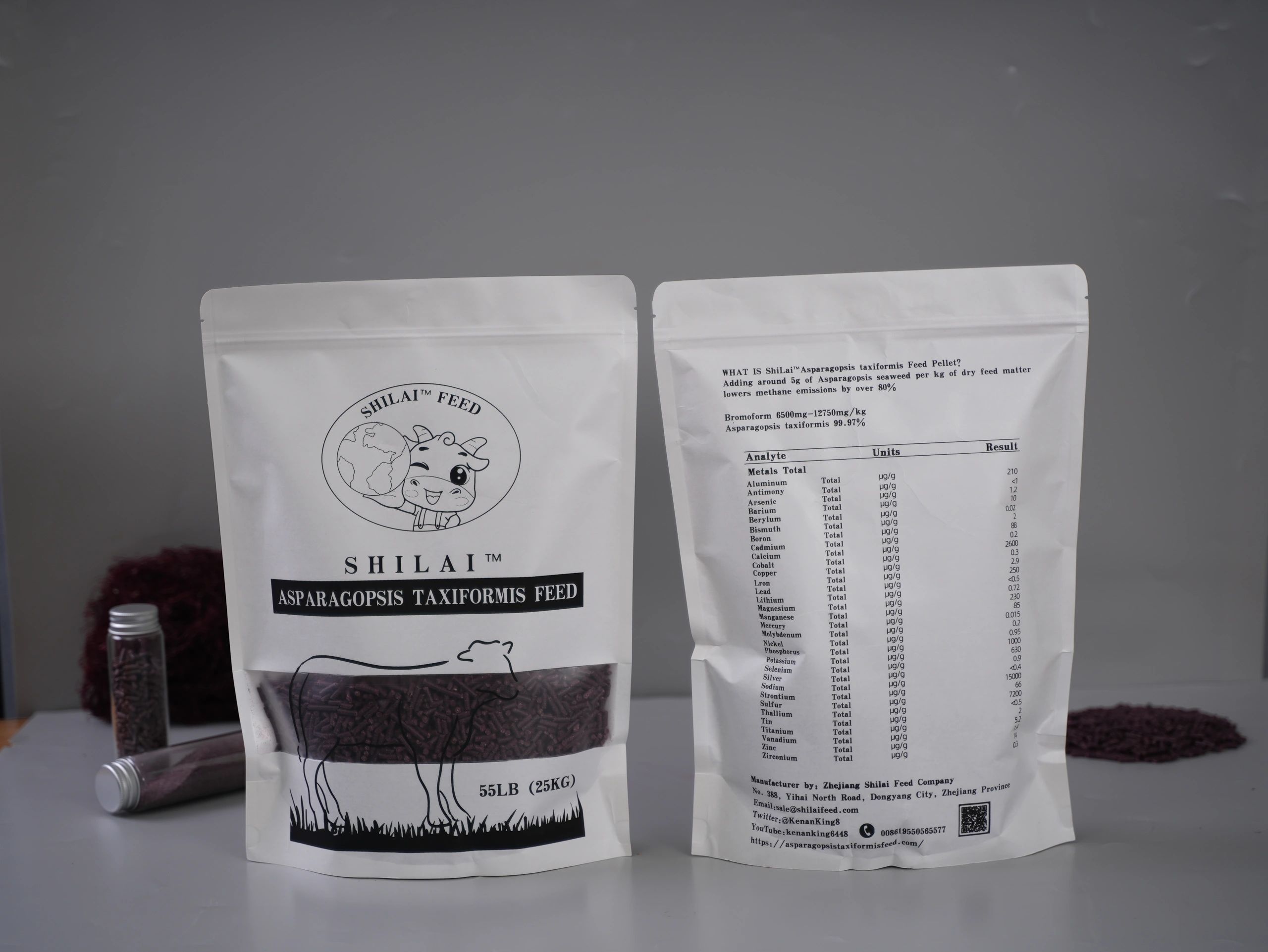
The global agricultural sector is a major source of greenhouse gas emissions, especially from livestock farming.
With a higher global warming potential than CO2, methane represents a particularly damaging contributor to climate change.
Interest is growing in Asparagopsis taxiformis, a red seaweed, for its potential to substantially cut enteric methane in ruminants.
A distinctive compound present in the alga curbs methanogenic activity in the rumen and reduces emitted methane volumes.
Formulating feeds with Asparagopsis taxiformis has yielded encouraging outcomes in early trials, pointing to a practical route for cutting agricultural greenhouse gases.
- Asparagopsis taxiformis also contributes extra advantages that can support sustainable farming transitions.
- Elevated animal welfare and condition
- Opportunities to develop sustainable aquaculture-driven industries
Although additional studies and scale-up work are required, Asparagopsis taxiformis holds strong potential as a durable means to cut livestock emissions.
Harnessing Asparagopsis taxiformis Powder as an Innovative Feed Additive
Asparagopsis taxiformis powder or extract could transform animal nutrition and feed strategies across livestock sectors.
The seaweed’s composition includes valuable nutrients and active molecules that can improve productivity metrics.
Integrating A. taxiformis powder into feed formulas has decreased methane in experiments and can enhance nutrient supply.
Ongoing research must address effective dosing strategies, production processes, and chronic safety/effectiveness considerations.
Asparagopsis taxiformis: Driving New Models of Sustainable Livestock Production
The species is increasingly seen as an intervention to lessen the environmental footprint of conventional livestock production.
Using the algae as a feed ingredient offers a pathway for farmers to reduce methane and improve the environmental profile of production.
Experiments have shown possible improvements in animal condition and performance when Asparagopsis is included in diets.
More work to verify long-term safety and logistical viability is necessary, though early findings look promising.
Reducing Enteric Methane by Adding Asparagopsis to Feed
Scientists identify Asparagopsis as a credible method to reduce methane generation within the rumen of ruminants.
The mechanism involves the seaweed’s compounds blocking or inhibiting the microbes that produce methane in the rumen.
- Experimental studies have reported large percentage reductions in methane when Asparagopsis is included in diets.
- Adopting Asparagopsis in feeds offers an eco-friendly option to address methane from livestock.
- Farming operations are starting pilot projects to assess the adoption of Asparagopsis in feeds.
Asparagopsis: Revolutionizing Methane Management in Livestock Farming
Ocean-sourced Asparagopsis taxiformis is gaining recognition for its capacity to reduce methane in ruminant digestion.
- Experimental feeding of Asparagopsis yielded large methane reductions, suggesting important environmental gains.
- The approach may enable more sustainable food systems that reduce emissions while maintaining farm productivity.
As global efforts intensify to find sustainable climate solutions, Asparagopsis stands out as a novel and actionable option for livestock methane mitigation.
Optimizing Methane-Cut Feed with Asparagopsis taxiformis
Scientific teams are investigating best-practice processing and dosing to improve the performance of A. taxiformis in feeds.
The Science Behind Asparagopsis taxiformis's Methane-Lowering Effects

The observed methane reduction results from the seaweed’s compounds that hinder the growth and function of methanogenic microbes.
Bromoform and related halogenated compounds are thought to play a major role in disrupting methane production, with ongoing safety studies.
Embedding Asparagopsis in Feed Formulations to Drive Sustainable Farming
Asparagopsis’s nutritional and functional traits position it as a compelling feed ingredient for greener farming.
Incorporating the species into feeds may raise nutrient levels, optimize digestion, and contribute protective antimicrobial actions.
A Sustainable Future Built on Asparagopsis taxiformis
The seaweed is positioned as an innovative, nature-based measure to tackle emissions and improve the sustainability of food supply chains.
- Moreover, adding Asparagopsis can boost the micronutrient and bioactive content of animal feeds.
- Research teams and industry players are assessing the species for multiple applications within food production chains.
Embedding the seaweed in feed strategies could help diminish the overall environmental impact of farming operations.
Asparagopsis Feed Additive: Benefits for Health and Productivity
The seaweed is gaining recognition for potential dual benefits: emissions reduction and enhancements in animal performance.
Experimental results show enhanced nutrient utilization and feed conversion in animals fed Asparagopsis, aiding growth and condition.
The algae may also exhibit antioxidant and immune-supporting properties that help fortify animal resilience and reduce disease risk.
The momentum behind sustainable livestock practices enhances the appeal of Asparagopsis as studies and commercialization advance.
A Sustainable Trajectory: Methane-Cut Feeds Based on Asparagopsis
In response to carbon-reduction imperatives, Asparagopsis could play a role in reducing the climate footprint of livestock farming.
- Researchers suspect the algae’s molecules interfere with the biochemical steps of methanogenesis, reducing methane generation.
- Multiple trials have reported encouraging outcomes, with pronounced methane declines in animals fed Asparagopsis.
Asparagopsis-based feeds may enable a transition to more climate-friendly and resilient agricultural practices.